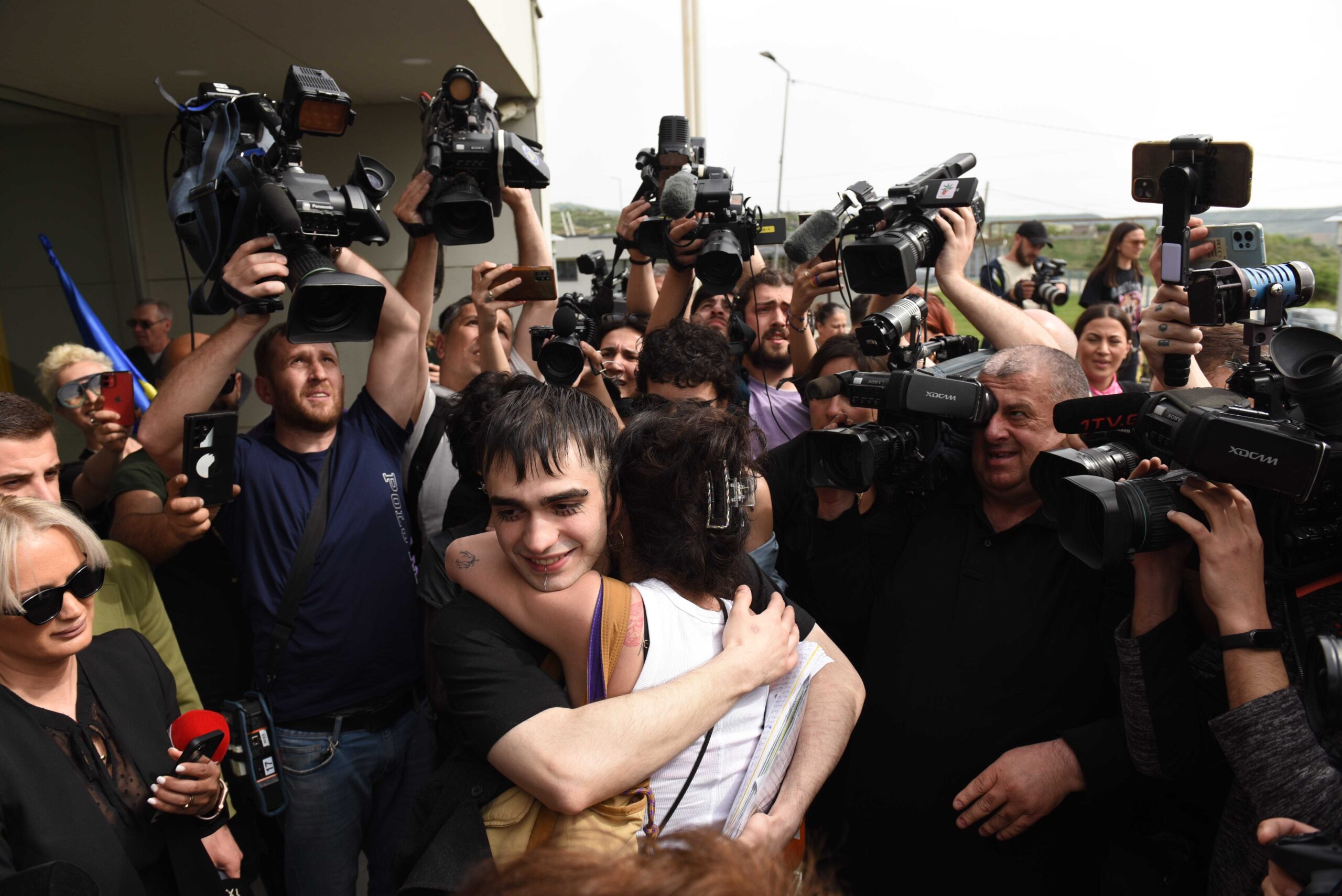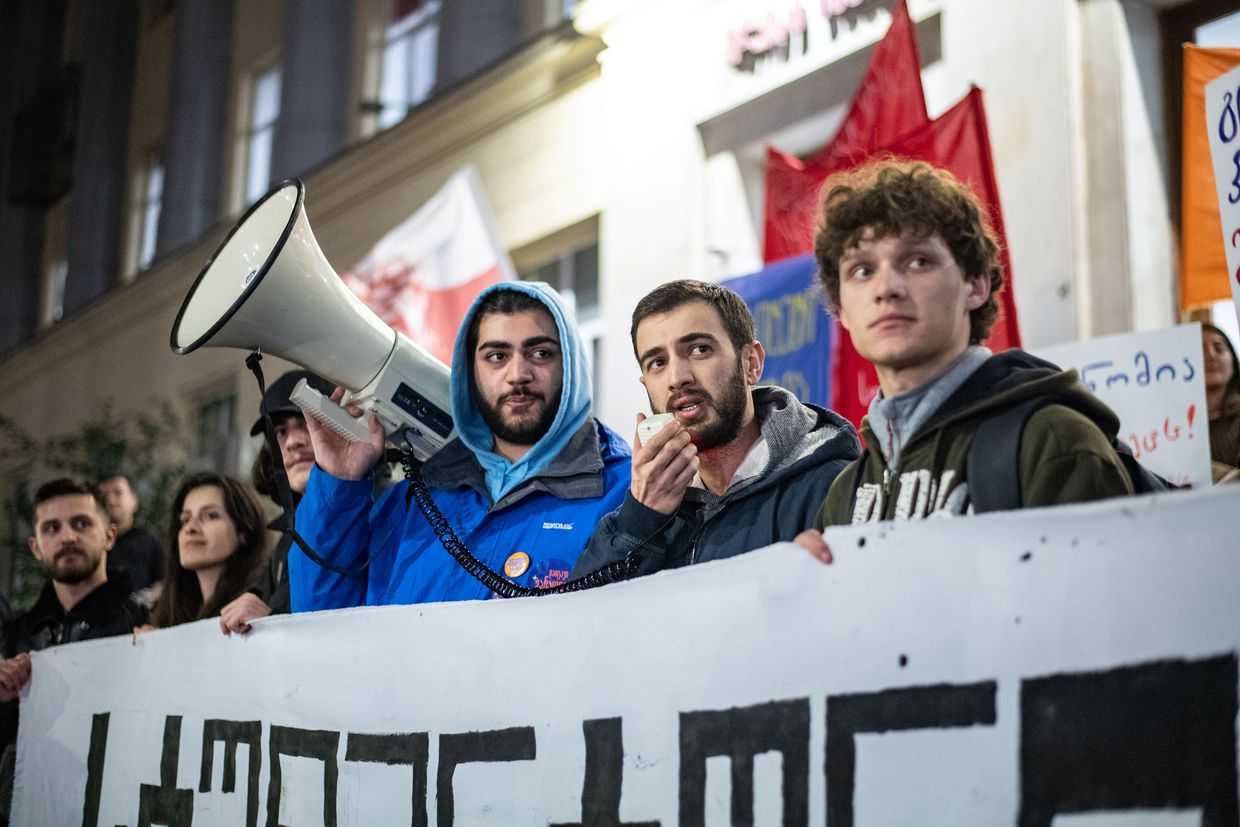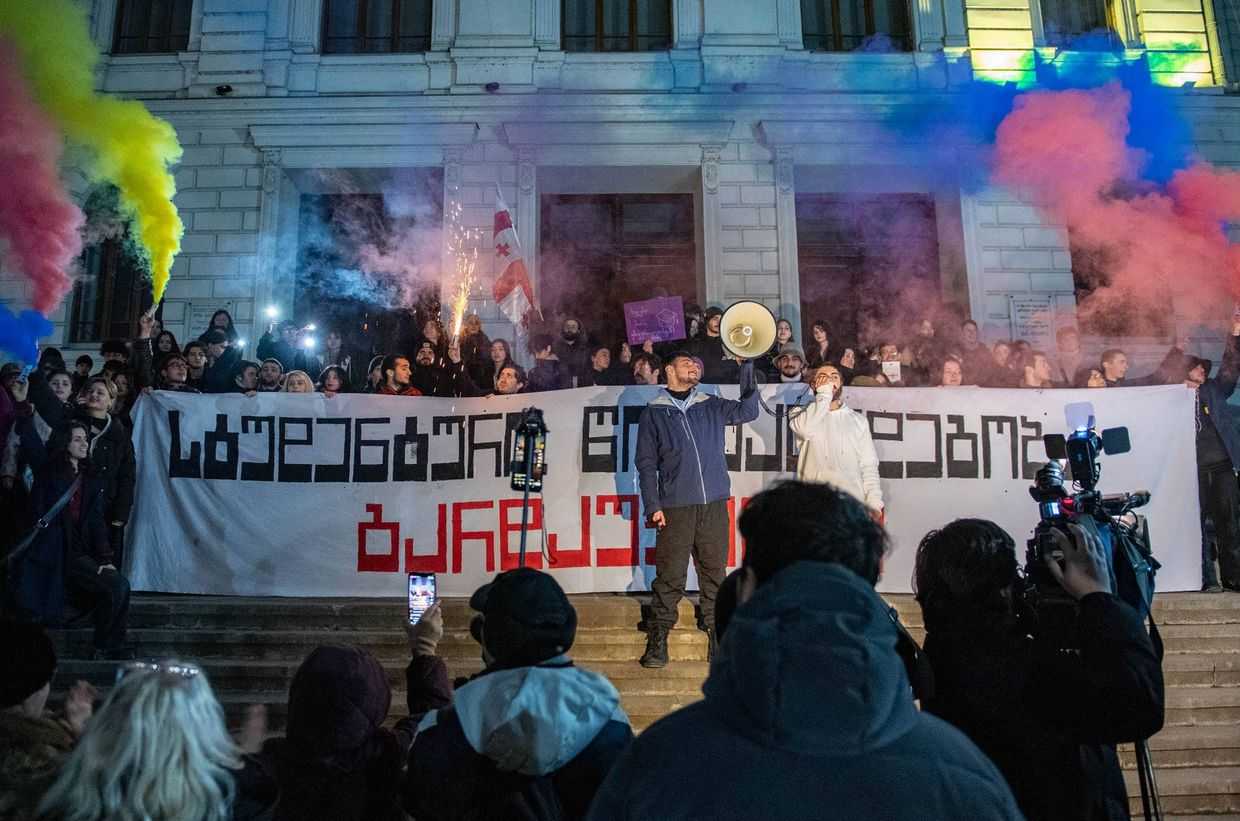
Lazare Grigoriadis, convicted of violence during the anti-government protests in Tbilisi in March last year, has been released from prison following President Salome Zourabichvili’s pardon.
Zourabichvili announced her decision hours after Grigoriadis was sentenced on 12 April to nine years in prison on charges of arson and attacking a police officer during the March 2023 protests against Georgia’s draft foreign agent law. His release from Tbilisi’s Gldani prison comes as the ruling party are once again attempting to bring the controversial legislation back.
Upon his release, Grigoriadis thanked president Zourabichvili, the media, and his supporters, and vowed to rejoin the renewed protests against the foreign agent draft bill later the same day.

‘It undermines our democracy, and I think we can’t adopt laws like this [while we’re] on our path towards the European Union’, Grigoriadis said before the pool of journalists.
[Read more: Georgian foreign agent bill passes first reading in parliament amidst massive protests]
Critics have claimed that the case was politicised from the outset. Current Georgian PM and then Georgian Dream chair, Irakli Kobakhidze, and Irakli Gharibashvili, with whom Kobakhidze swapped places in February, insisted on Grigoriadis’ guilt long before the judge found him guilty.
Kobakhidze also suggested that Grigoriadis had his ‘orientations all messed up’, while pro-government channels frequently shared images of Grigoriadis that made prominent his distinctive facial tattoos, bleached hair, and jewellery.

Despite Zourabichvili’s announcement over a week ago, Grigoriadis remained imprisoned until Wednesday, reportedly because the president was not provided with the documents required to formalise the pardon.
Grigoriadis’s lawyers claimed that the process of Grigoriadis’ release was drawn out as a result of judge Zviad Sharadze designating the case as ‘complicated’, and thereby prolonging the time required to produce the documents formalising his conviction.
After being detained on 29 March last year, Lazare Grigoriadis spent almost thirteen months in pre-trial detention before eventually being found guilty, a verdict that his representatives dismissed as politically motivated.









